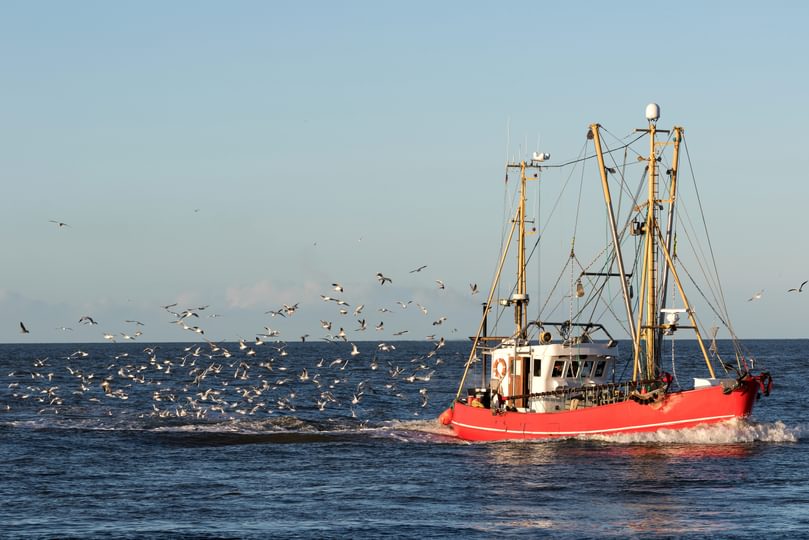
International strategies to safeguard the marine environment and the sustainability of fisheries on the high seas could see a step change thanks to the generous support of the Prince Albert II of Monaco Foundation, which has announced a three-year partnership with the Oxford Martin School at the University of Oxford.
The foundation is supporting an exciting new research strand of the Oxford Martin Programme on Sustainable Oceans (OMPSO), which will address crucial gaps in the monitoring and management of our oceans.
Established in 2006, the Prince Albert II of Monaco Foundation is dedicated to the protection of the environment and the promotion of sustainable development on a global scale. The foundation supports initiatives of public and private organisations, in the fields of research and studies, technological innovation and socially-aware practices.
Professor Sir Charles Godfray, Director of the Oxford Martin School, says: "There is growing realisation of the importance of managing ocean ecosystems to protect biodiversity and productive fisheries and I’m delighted that the Prince Albert II of Monaco Foundation is partnering with the Oxford Martin School on this important project."
Identifying legal and policy weaknesses
Illegal and unreported fishing thrives in areas of poor governance, resulting in significant adverse impact on the marine environment. One of the key aims of the project is, therefore, to identify the weaknesses in existing legal and policy tools and the changes that will address them. Ultimately, this work will contribute to the effective implementation of current laws, in particular the United Nations Convention on the Law of the Sea (UNCLOS) and Biodiversity Beyond National Jurisdiction (BBNJ).
H.E. Mr Bernard Fautrier, Vice-President and Chief Executive Director of the Prince Albert II of Monaco Foundation explains: "The Prince Albert II of Monaco Foundation, through its support of this project and its international commitments, wishes to engage all actors towards transparency and implementation of sustainable management measures for the conservation of the Ocean."
Developing greater understanding
Led by a globally renowned, interdisciplinary team, the project will draw heavily on expertise in fisheries surveillance, Earth observation, and the Law of the Sea.
The initial focus of the project will be to develop a greater understanding of the behaviours of fishers on the high seas, auditing the level of compliance relating to spatial and time-bound closures of specific areas. By exploring the value of technology in this process, from Earth observation via satellite to computer modelling and machine learning, the project team will be in a position to make recommendations which will address barriers to progress in sustainable ocean management and influence future legal and policy frameworks.
Breaking new ground
With little comparative legal work having been conducted to assess current practice and evaluate legal culture in this area, the impact of the team’s work could be far-reaching. This month, the UN entered into an inter-governmental conference on a new implementing agreement for the law of the sea convention. This new project will help governments to understand how to monitor marine protected areas beyond national jurisdiction, which is a critical step in their enforcement.